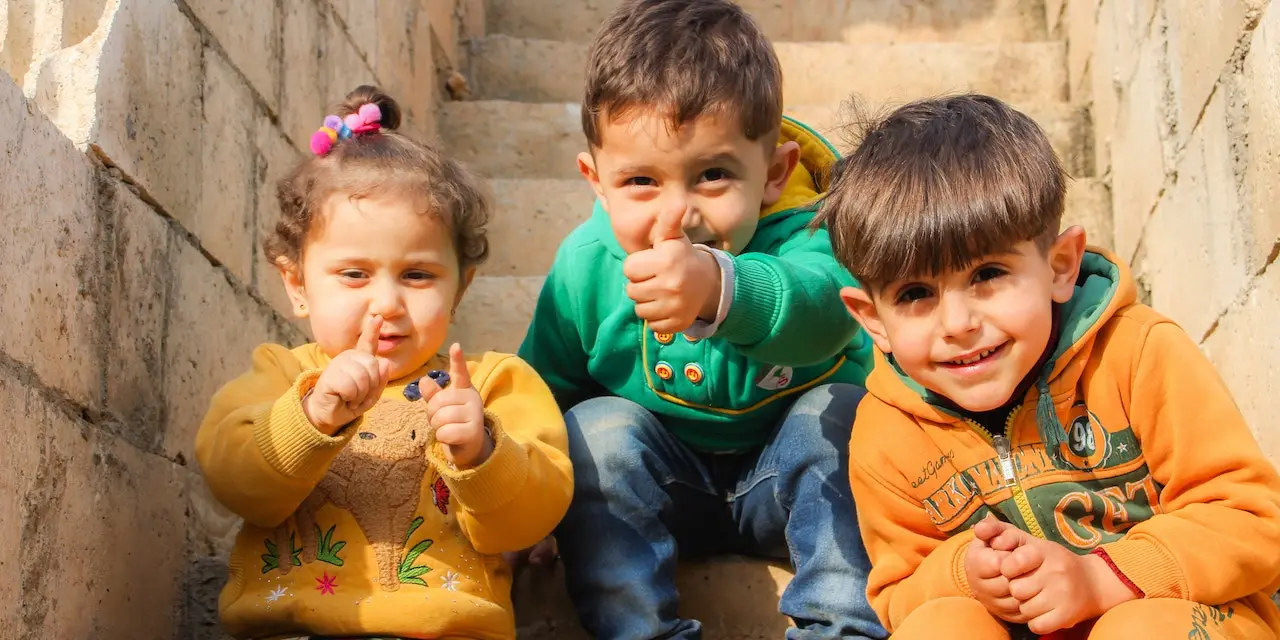
152 million babies born preterm in the last decade
An estimated 13.4 million babies were born pre-term in 2020, with nearly 1 million dying from preterm complications, according to a new report released by United Nations agencies and partners today. This is equivalent to around 1 in 10 babies born early (before 37 weeks of pregnancy) worldwide.
Born too soon: decade of action on preterm birth, produced by the World Health Organization (WHO) and the United Nations Children’s Fund (UNICEF) together with PMNCH — the world’s largest alliance for women, children, and adolescents, sounds the alarm on a “silent emergency” of preterm birth, long under-recognized in its scale and severity, which is impeding progress in improving children’s health and survival.
The report includes updated estimates from WHO and UNICEF, prepared with the London School of Hygiene and Tropical Medicine, on the prevalence of preterm births. Overall, it finds that preterm birth rates have not changed in any region in the world in the past decade, with 152 million vulnerable babies born too soon from 2010 to 2020.
Preterm birth is now the leading cause of child deaths, accounting for more than 1 in 5 of all deaths of children occurring before their 5th birthday. Preterm survivors can face lifelong health consequences, with an increased likelihood of disability and developmental delays.
Survival gaps by region, income, race
Building from a landmark report on the topic in 2012, this new Born too soon “decade” report provides a comprehensive overview of the prevalence of preterm birth and its profound impact on women, families, societies and economies.
Too often, where babies are born determines if they survive. The report notes that only 1 in 10 extremely preterm babies (<28 weeks) survive in low-income countries, compared to more than 9 in 10 in high-income countries. Gaping inequalities related to race, ethnicity, income, and access to quality care determine the likelihood of preterm birth, death, and disability, even in high-income countries.
Southern Asia and sub-Saharan Africa have the highest rates of preterm birth, and preterm babies in these regions face the highest mortality risk. Together, these two regions account for more than 65% of preterm births globally. The report also highlights that the impacts of conflict, climate change and environmental damage, COVID-19, and rising living costs are increasing risks for women and babies everywhere. For example, air pollution is estimated to contribute to 6 million preterm births each year. Nearly 1 in 10 preterm babies are born in the 10 most fragile countries affected by humanitarian crises, according to a new analysis in the report.
Maternal health risks, such as adolescent pregnancy and pre-eclampsia, are closely linked to preterm births. This underlines the need to ensure access to sexual and reproductive health services, including effective family planning, with high-quality care in pregnancy and around the time of birth.
Agenda for action: more country investment and parent-led activism
The past decade has also seen a growth of community activism on preterm birth and stillbirth prevention, driven by networks of parents, health professionals, academia, civil society, and others. Throughout the world, groups for affected families of preterm birth have been at the forefront of advocating for access to better care and policy change and supporting other families.
Leading up to the International Maternal Newborn Health Conference, in Cape Town, South Africa from 8-11 May, WHO, UNICEF, UNFPA and PMNCH are calling for the following actions to improve care for women and newborns and mitigate risks from preterm births:
Increased investments: Mobilizing international and domestic resources to optimize maternal and newborn health, ensuring high quality care is provided when and where it is needed.Accelerated implementation: Meeting country targets for progress through implementing established national policies for maternal and newborn care.Integration across sectors: Promoting education through the life cycle; supporting smarter economic investments, with co-financing across sectors; strengthening climate adaptation responses across the life-course; and advancing the coordination and resilience of emergency systems.Locally driven innovation: Investing in locally led innovation and research to support improvements in quality of care and equity in access.
Quotes
Prof. Joy Lawn, London School of Hygiene & Tropical MedicineCo-lead, Born too soon: decade of action on preterm birth (2023) and Born too soon (2012)
“This new report shows that the cost of inaction over the last decade was 152 million babies born too soon. While some regions are more affected, preterm birth threatens health progress in every country. Greater investment in the care of vulnerable newborns can save millions of families from heartbreak. More work is also needed to prevent preterm birth, which will also improve progress in reducing stillbirths and maternal deaths. Together these twin tracks of preterm prevention and care will produce healthier individuals and societies to deliver on economic and social development. Our next generation depends on us all acting now — the investment may not be small but the returns on this investment will be major for every country”
Dr Nahya Salim, Tanzania: Born Too Soon co-author and national lead of Newborn Essential Solutions and Technologies 360 (NEST360)
“There is now no excuse for silence. We now have in our hands the devices and the knowledge to change outcomes for our most vulnerable newborns. I am proud to see my government now investing and committed to implementation across even rural areas. The next decade can and must be different for those facing preterm birth here and everywhere.”
Dr Anshu Banerjee, Director for Maternal, Newborn, Child and Adolescent Health and Ageing at WHO
“Ensuring quality care for these tiniest, most vulnerable babies and their families is absolutely imperative for improving child health and survival. Progress is also needed to help prevent preterm births — this means every woman must be able to access quality health services before and during pregnancy to identify and manage risks.”
Steven Lauwerier, Director of Health (a.i.), UNICEF
“After every preterm death is a trail of loss and heartbreak. Despite the many advances the world has made in the past decade, we have made no progress in reducing the number of small babies born too soon or averting the risk of their death. The toll is devasting. It’s time we improve access to care for pregnant mothers and preterm infants and ensure every child gets a healthy start and thrives in life.”
Helga Fogstad, Executive Director, PMNCH
“Born too soon underlines why we must increase investment and accountability for preterm birth – the world’s largest cause of death of children under the age of five. Progress is flatlining for maternal and newborn health, as well as the prevention of stillbirths, and is now pushed back further through the devastating combination of COVID-19, climate change, expanding conflicts and rising living costs.
“By working together in partnership – governments, donors, the private sector, civil society, parents, and health professionals – we can sound the alarm about this “silent emergency”, and bring preterm prevention and care efforts to the forefront of national health and development efforts, building human capital by supporting families, societies and economies everywhere.”
Gabriela and Jerome Foster, Las Vegas, United States: parents of Jalen Foster, and founders of Jalen’s Gift Foundation
“Our foundation was founded after the loss of our son, Jalen Foster, who was a preterm stillbirth at 27 weeks due to prenatal onset of a bacteria known as group B streptococcus. Losing our son was devastating, and there was no support in the community and that’s when we decided to provide a place of comfort and hope for families who have lost a baby. We didn’t want other families to feel like we did – alone. So, we started Jalen’s Gift Foundation to help other families going through a loss, to provide multiple free services, such as photograph, grief support and help towards memorial services.
Source link:https://www.who.int/





